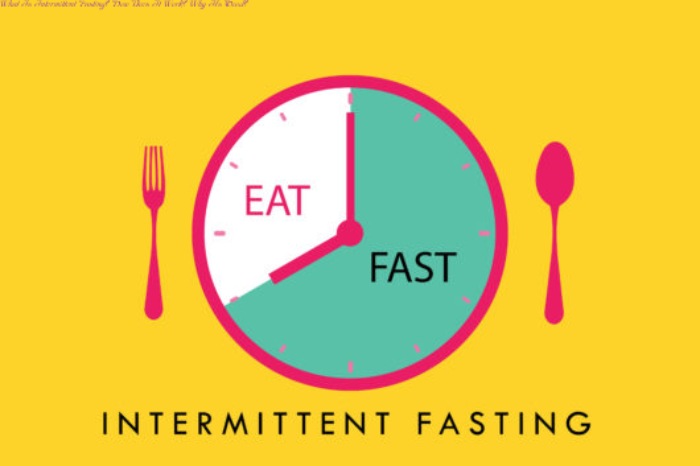Table of Contents
Explanation
The mainstay of intermittent fasting, which comes in various forms and techniques, is skipping meals for a certain period each day or a few days of the week.
There are three options for 16:8 fasting: every day, daily, or just on specific days of the week.
Since intermittent fasting does not involve severe restrictions or food deprivation, it is a realistic and straightforward diet.
The most popular treatment for intermittent fasting fever is the 16:8 diet, which calls for eating only 8 hours into the day and not eating for the remaining 16 hours.
Methods of intermittent fasting
There are several ways to do intermittent fasting, however, the most popular one is as follows:
observing a 12-hour fast every day
This approach is perfect for novices. This type of fasting is skipping hard food for 12 straight hours and consuming a nutritious meal for the last 12 hours.
Here, intermittent fasting aids in the body’s transformation of stored fat into energy, which results in weight reduction.
observing a weekly full day of fasting
The foundation of this fast is avoiding any food for one or two days every week or for 24 hours at a time. During fasting, only liquids like water, coffee, and sugar-free tea may be consumed.
Anyone using this intermittent fasting strategy should be aware that there are some unsettling dangers and symptoms associated with it, including headaches and exhaustion, particularly in the early stages of the protocol. These symptoms may go away as the body adjusts to the new routine.
To progressively re-habit the body, beginners also like to fast for shorter periods before completing 24 hours.
Advantages of sporadic fasting
Boost memory and cognitive skills.
Increase resting heart rate, blood pressure, and other heart-related metrics.
A 16-hour fast reduced fat without compromising muscular mass in young boys. Mice fed on different days also showed greater running endurance.
It prevents obesity in experiments on animals, and in six short studies, it helped obese adult people lose weight.
How does sporadic fasting operate?
There are several approaches to it, but they all rely on consistent eating and fasting periods. You may try eating for only eight hours a day and fasting the rest of the time, or you may decide to eat just one meal a day, twice a week, on a variety of days.
It functions by extending the time after your body uses up and expels the calories from your most recent meal. Once that happens, it begins burning fat, which can aid in weight loss and removing “belly” fat if you don’t consume much at once.
Does sporadic fasting have any risks?
Some attempt to stop fasting to lose weight. Conversely, some individuals employ this technique to address long-term ailments such as irritable bowel syndrome (IRS), elevated cholesterol, and arthritis; nevertheless, intermittent fasting may not be appropriate for all individuals.
Johns Hopkins University nutritionist Christy Williams emphasizes that you should consult your doctor before attempting any diet, including fasting.
Several categories cannot participate in intermittent fasting.
- when expecting a child or nursing one.
- Those with diabetes or problems with their blood sugar.
- Those who previously struggled with eating disorders.
- Intermittent fasting may have various effects on different people. See your doctor as soon as you start feeling sick.
- Headache, nausea, tiredness, or other symptoms that appear later.
- Young people under the age of eighteen.
- In summary
According to author Jennifer Cook, intermittent fasting can lower infections and the risk of heart disease, type 2 diabetes, and even some malignancies when appropriately done, as reported in a Washington Post article.
Additionally, this kind of fasting helps to keep the typical balance between blood sugar and the hormone insulin.
Sugar prevents the buildup of insulin resistance. This disorder allows the body to heal when it sustains injury, avoiding severe illnesses.
Also read:- What are biotin supplements?







